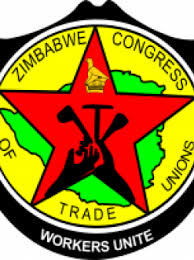By Policy Desk
The Zimbabwe Congress of Trade Union, ZCTU, has commended the projections of the recent Monetary Policy despite the imbalances it showed when the general population and workers circumstances are evaluated.
ZCTU in a response to the policy statement recently urged the second republic to learn from their shortcomings in determining the currency status of Zimbabwe, as can be learnt globally as effects can be devastating.
“While the inflationary outlook looks encouraging, however, the negative impact of prolonged austerity needs to be taken into consideration, and particularly the impact on social development. This is particularly critical in the context of the ‘new dispensation’ in that since the elections of 30 July 2018, the authorities have experimented with various currency reforms and have implemented various austerity measures during the past seven years. As studies elsewhere have consistently showed, stabilisation / austerity measures tend to be pro-cyclical, often exacerbating crises.” An analysis by ZCTU emphasised.
The ZCTU called for a more liberal approach to policy, lambasted the bureaucratic wage redress process, while emphasising the purge the worker has experienced, while calling for address of the recent job losses and the UŽ strike as potential learning points for government.
“The slow pace of wage adjustment is reflected in that the minimum wage which was negotiated at the Tripartite Negotiating Forum (TNF) of USD150 (or its ZiG equivalent) per month was approved by Cabinet in October 2022, and only gazetted on Friday, May 23, 2025.” The analysis argued.
On the other hand, “An overly tight monetary policy framework has resulted in artificial shortages of the domestic currency, amidst a rapidly dollarizing economy. Moreover, it has been observed that government has not been meeting some outstanding payments to service providers, which may characterise the stability as to some extent contrived.”
Moreover, “Workers have borne a disproportionate burden of austerity and adjustment, with their earnings reduced to nothing. Zimbabwe has recently experienced a surge in job losses due to retrenchments, with both state-owned and private companies cutting staff. The Labour Force Survey data suggests that unemployment in recent times increased from 14% in 2019 to 19.1% by Q4 2022 to 19.3% in Q1 2023, 19.7% in Q2 2023, 21% Q3 2023, and 21.8% by Q3 2024. “
It was also noted important that, “The recent strike by University of Zimbabwe staff exposed the extent of the erosion of salaries in that while pre-October 2018 junior lecturers earned on average US$2,250 per month, this has been whittled down to the current take home salary of only US$230 plus a local currency component of less than ZiG8,000 – worth under US$200 – an effective salary cut of 87%.” The statement noted.
ZCTU also urged government to not concentrate solely on dealing with inflation as this could result in other areas not being covered.
“Furthermore, a singular focus on inflation-targeting can easily undermine other equally important social objectives, including employment promotion. While more than half of the 44 countries in Sub-Saharan Africa with available poverty-trend data have experienced a reduction in people living in extreme poverty since 1990, 18, including Zimbabwe, have experienced an increase.” The analysis highlighted.
ZCTU has been a Zimbabwe Liberation government since the late nineties but has failed to meet their political intention despite being argued to be part of a broader agenda to negotiate the change of government which ‘shall never see light.

